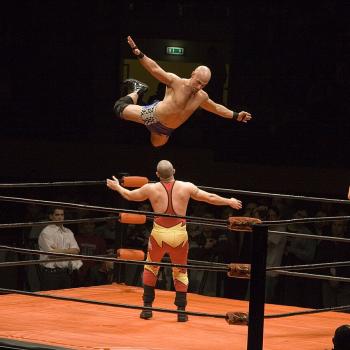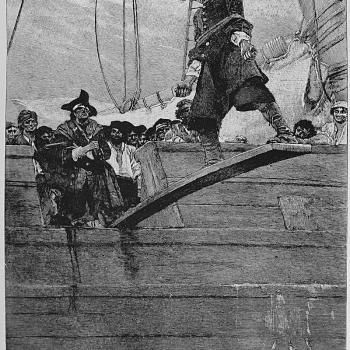O.K. Here’s the situation…
Is Suspending Trump on Twitter a Violation of Free Speech?
Is this an assault on our Democracy?

My facebook friend Ralph Harbison doesn’t think so. He explains it in the most level headed reasonable way possible.
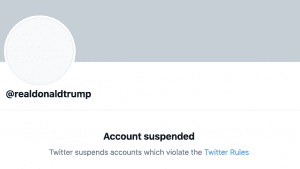
Twitter and Facebook blocking Trump,
Google and Apple removing Parler,
and all the pushback against QAnon isn’t about silencing those who disagree nor is it about free speech.
This is about companies deciding that brands have become toxic and will damage their own brand if left alone.
Think about this: the long term protections for Twitter in 2014 weren’t great. The trend seemed to be away from that mess of an ap. But Trump runs for president and suddenly Twitter is relevant again. In fact, by being the “media of choice” for the President of the United States, Twitter became PART of the news story. You HAD to be on Twitter if you covered the WH, his family, etc. You had to be on Twitter to interact with him.

So what changed? People died in a riot that was pre-planned on Parler as a way to get to the Legislative branch as it considered accepting the EC votes. Parler, due to its “unregulated” nature is now toxic because of that. Twitter doesn’t want that moniker, even though Trump and Q (also toxic now for pushing conspiracy theories) saved the platform.
Believe what you want, and you will, but this is no different than a store pulling a product that seems linked to illnesses, even if there is no proof. Short term, it takes a hit but that is better than the long term damage.
Now, Trump can rehab his brand.
Hugo Boss was literally a Nazi who designed all the Nazi uniforms. His company is still around and brings in billions every year.
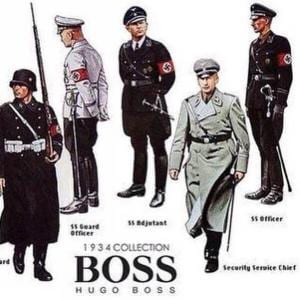
Mitsubishi built the Japanese war machine leading up to and during World War 2, even using slave labor (including American POWs), and they are still a leading defense contractor and manufacturer of damn near everything. How does he do that? Well, that is a story for another day.

What about Q? I can’t see an avenue for brand rehab due to its nature. Unless Q shifts to a legitimate news source, it stays toxic.

Parler? Again, there is an avenue. Parler already collects more information about its users than any other social media. That means it can easily tell the FBI who did what. Further, Parler reserves the right to sue the crap out of users for what they post as well as pass along the costs of any lawsuits due to posts (Facebook and Twitter do not). Parler can turn over to law enforcement and then bankrupt the people who caused the riots/attacks, giving them a huge image boost, but it won’t. So that brand stays toxic.
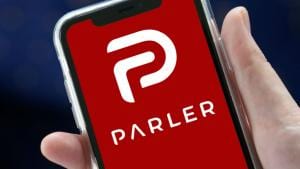
Start looking at this world for what it is: a business.
Once you do that, maybe you won’t take these things so personally.
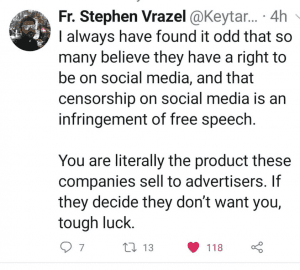
Another Facebooker, Donna Patten Snyder, adds this…
It’s capitalism, these are private companies and this isn’t the public square — every person still has the ability to speak — out loud — to whomever wants to listen — the PRESIDENT will surely be quoted and recorded and replayed on various news sources if he wants to communicate with citizens.
If Joe’s Pizza Shack can refuse service if you try to come in without shoes on — Twitter (etc) can refuse to allow certain people to post. — and those who are very upset with that, can vote with their virtual feet and leave the platform.
When you’re using social media to plan to attack the capital — that’s a problem — and while *I* do not think it’s useful to chase these people to the dark corners of the internet to grow their troll farms, I also don’t think it’s a good idea to give them the ability to fan the flames of conspiracy where otherwise normal people might be confused by them.
Kinda — hard to disagree that this is dangerous, IMO —

And just to give things a different perspective, Fr. Louis Melahn has this to say…
Although it doesn’t violate the First Amendment, I think that as a moral and practical matter it is a fantastically bad idea for Twitter and Facebook to de-platform the President, or anyone else, for that matter.
I think that the principal behind the First Amendment—that dialogue flowers in an environment in which no one is removed from the discussion simply for expressing an opinion (even a false one)—is valid even in the private sector, even though the social media companies have no legal obligation to operate in this way.
Nevertheless, the government has no role arbitrating the relationship between the platform and its clients, except to ensure that it has not inadvertently erected barriers to entry to competitors. (It would be good, for instance to reexamine the DCMA, which governs copyright in the digital era. That law has has a stifling effect on innovation in digital platforms, in my opinion.)
The events in the coming weeks will continue to be interesting.








